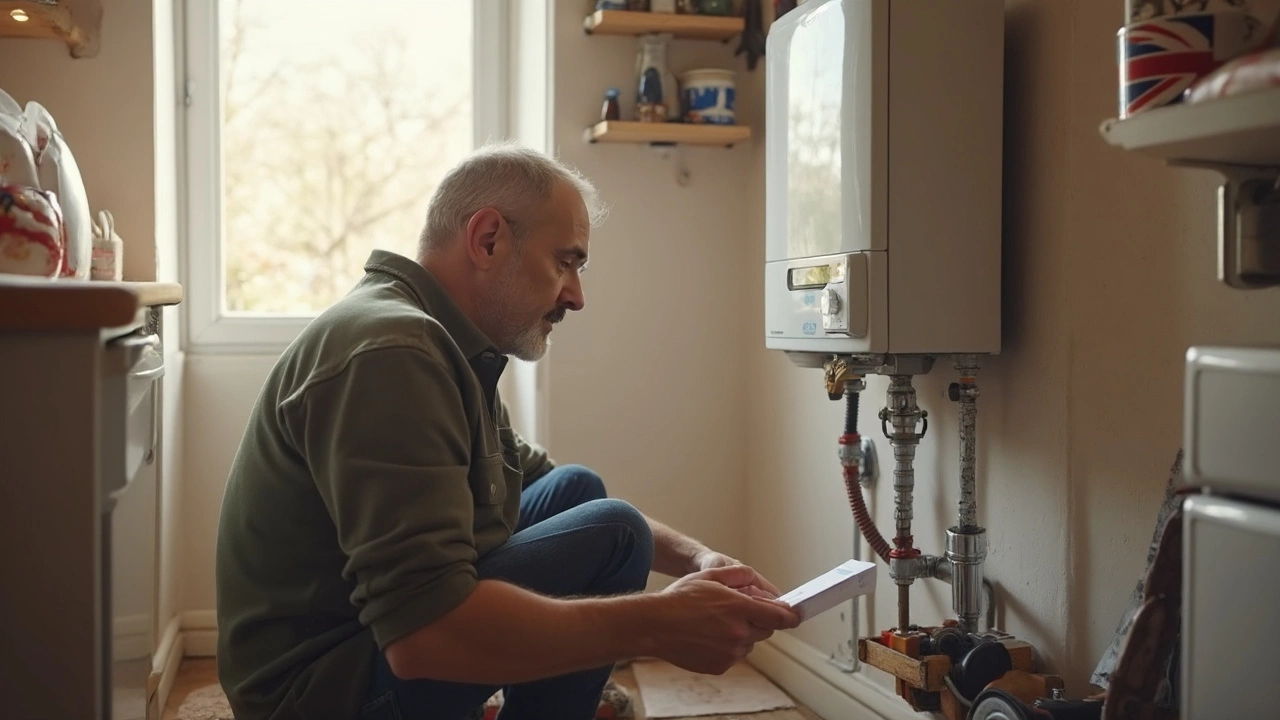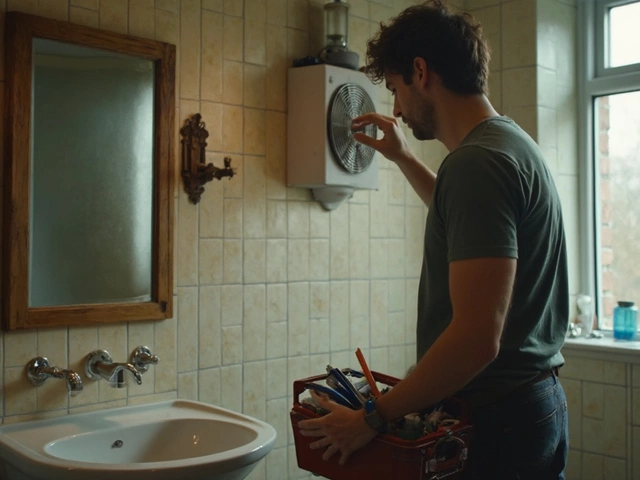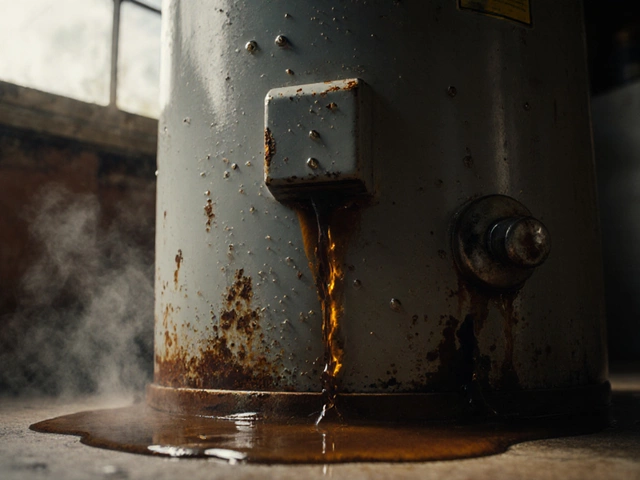Your boiler works hard all winter, but a little care from you can make it last longer and run smoother. You don’t need a degree in engineering – just a few everyday tools and a bit of time. Below are the most useful checks you can do yourself, plus clear signs that it’s time to call an expert.
Start with the pressure gauge. Most boilers show a green window with a number between 1 and 2 bar when the system is cold. If the needle is low, open the filling loop until it reaches the right level. Too high pressure can cause leaks, so don’t over‑fill.
Next, bleed your radiators. Cold spots mean trapped air, which makes the boiler work harder. Use a radiator key, turn the valve slightly until you hear a hiss, then close it. This quick step restores even heat and cuts down on fuel use.
Give the exterior a wipe‑down. Dust on the heat‑exchanger fins reduces efficiency. A soft brush or a vacuum with a narrow nozzle clears debris without damaging parts. While you’re at it, check for rust, corrosion, or any wet spots that could indicate a leak.
Inspect the condensate pipe (if you have a condensing boiler). It should slope away from the house and stay clear of blockages. A simple flow test—run hot water and watch the pipe – will tell you if anything’s stuck.
If you notice strange noises like banging or whistling, that’s a red flag. It could mean a pump problem or excess air that needs a technician’s eye. Same with any smells of gas – turn off the boiler, ventilate the room, and call a Gas Safe registered engineer immediately.
Annual servicing is a must, even if you do all the DIY checks. A qualified pro will test the combustion, check the flame, and clean internal components you can’t safely reach. Our post “Boiler Service Cost Guide 2025” breaks down pricing so you know what to expect.
Finally, if the boiler refuses to fire up after you’ve checked pressure and the thermostat, it’s time for professional help. Trying to force a start can damage electrical parts or the gas valve.
Doing these simple steps each month keeps your boiler humming, saves money on energy bills, and reduces the chance of an emergency breakdown. For deeper insights, read our guides on “Can I Repair My Boiler Myself?” and “Worried About Your Boiler? Signs, Risks, and When to Call an Expert.” Happy heating!

Thinking about handling your own boiler service? Get the truth about what you can and can’t do, why safety matters, and which tasks are okay for homeowners. This article covers legal restrictions, common mistakes to avoid, and practical tips for everyday boiler care. Learn how to spot problems early and when it's really time to call a pro. Save yourself headaches, money, and maybe even a major disaster by knowing the facts.

Repairing an extractor fan can seem daunting, but with the right guidance and tools, it's a task that can be tackled with confidence. This article walks you through the essential steps of diagnosing common issues, the tools needed for basic repairs, and tips for maintaining your fan in top condition. Whether in a kitchen or bathroom, keeping your extractor fan functional ensures optimal ventilation and air quality. Learn when a repair is possible and when it might be time to seek professional help.

Extractor fans are crucial for maintaining fresh air and reducing humidity in various parts of a home. When these fans malfunction, it's important to know who to call for repairs. This article guides homeowners on how to find reliable extractor fan repair services. We'll look at why professional help is essential and what to consider when selecting a repair technician.

Thinking about swapping out your old extractor fan? This guide digs into how easy (or not) it really is to replace an extractor fan in your bathroom or kitchen. Get the lowdown on what tools you'll need, common surprises people miss, and what makes some fans trickier than others. If you're not sure when to call in a pro, we've got your back there, too. Get ready for a clear, no-nonsense breakdown.

Most water heaters fail due to tank corrosion, heating element burnout, or sediment buildup. Learn the top failure points and how to spot them early to avoid costly repairs or floods.

Fridge warm but the light works? Find out why your refrigerator isn’t cooling, common causes, fixes, and when to call in an expert. Easy troubleshooting tips inside.